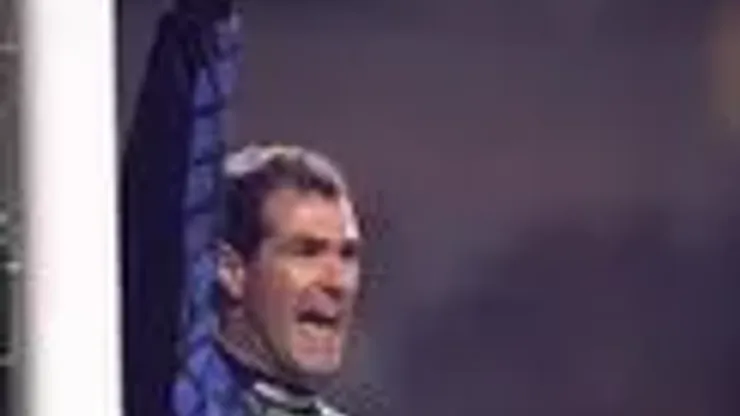One shotstopper destined to go down in history is Spanish legend Andoni Zubizarreta. A list of honours as long as his arm and a record number of international caps and La Liga appearances he is considered one of the greatest keepers in Spanish football. And I consider him to be one of the world’s best.
He began his career at his home-town club Aretxabaleta and then Deportivo Alaves before his big move to Athletic Bilbao in 1980. He won the first of his six career La Liga titles there in 1983 and again lifted the Spanish title a year later. His performances at this point certainly deserved international recognition, but in front of him was Luis Arconada – another Spanish goalkeeping legend.
Arconada had held the number one jersey since 1977 before a horrendous error that gifted France a goal in the EURO 1984 final signalled the beginning of the end for him. Zubizarreta finally earned his first cap in a 3-1 victory over Finland on 23 January 1985.
The following year he made the biggest move of his career to Barcelona. It was there he truly made his name and, well, the football stats speak for themselves:
– Games played: 490
– Goals conceded: 435
1 European Cup (1991/92)
1 Cup Winners Cup (1988/89)
1 European Super Cup (1992)
4 La Liga (1990/91, 91/92, 92/93 and 93/94)
2 Copa del Rey (1987/88 and 89/90)
2 Spanish Super Cups (1991 and 1992)
2 Copa Catalunya (1990/91 and 92/93)
‘Zubi’ as he became known, formed the backbone in one of the Catalan club’s greatest ever sides – and that’s saying something given Barca’s illustrious past. The so called ‘dream team’ under boss Johan Cruyff, who had returned to the club as manager, featured players like Josep Guardiola, José Mari Bakero, Gheorghe Hagi, Ronald Koeman, Michael Laudrup, Romário, Hristo Stoichkov and, of course, Zubizarreta.
1992 perhaps saw the peak of their powers, when Ronald Koeman’s extra-time free-kick overcame Sampdoria at Wembley and brought the European Cup back to Cataluna. But after that famous night Cruyff’s team began to break up and after eight successful years at the Nou Camp Zubi transferred to Valencia in 1994 where he racked up another 152 La Liga appearances.
Internationally Zubi matched his excellent form at club level. He had an excellent awareness, anticipation and reading of the game, meaning he rarely had to make spectacular last ditch saves – because he had already positioned himself so well.
He played in two European Championships in 1988 and 1996 , as well as four World Cups. He reached the quarter-finals in 1986 and 1994, though some of his greatest international performances came at Italia 90 when Spain only made the second round. His fourth and final World Cup appearance, at France 98, ended in disaster when he pushed the ball into his own net, gifting Nigeria victory in Spain’s opening group match. They never recovered and exited the competition at the group stage.
It was a sad end to a spectacular career and it shouldn’t be allowed to cloud your judgement on a player who ranks up there with the finest, not just of his generation, not just in Spain, but of all time.
I’m keen to hear anyone else’s views on Zubi’s career, whether you think he is indeed the greatest keeper of all time, and whether there are any pretenders to his throne?
200+ Channels With Sports & News
- Starting price: $33/mo. for fubo Latino Package
- Watch Premier League, Women’s World Cup, Euro 2024 & Gold Cup
The New Home of MLS
- Price: $14.99/mo. for MLS Season Pass
- Watch every MLS game including playoffs & Leagues Cup
Many Sports & ESPN Originals
- Price: $10.99/mo. (or get ESPN+, Hulu & Disney+ for $14.99/mo.)
- Features Bundesliga, LaLiga, Championship, & FA Cup
2,000+ soccer games per year
- Price: $5.99/mo
- Features Champions League, Serie A, Europa League & Brasileirāo
175 Premier League Games & PL TV
- Starting price: $5.99/mo. for Peacock Premium
- Watch 175 exclusive EPL games per season






